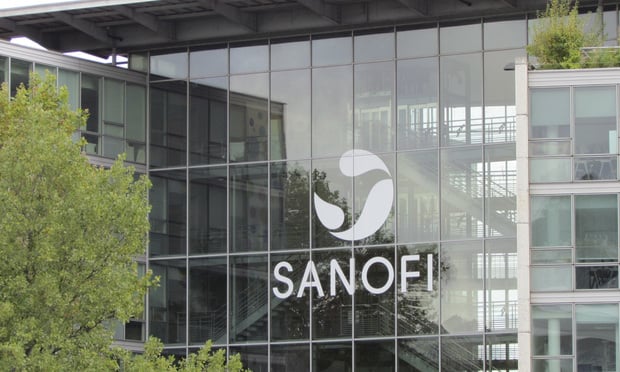 A courtruling could signal to insurers and providers nationwidethat states may choose to step in to protect consumers if a healthcompany gains too much market power or consumers' access to care isthreatened. (Photo: Shutterstock)
A courtruling could signal to insurers and providers nationwidethat states may choose to step in to protect consumers if a healthcompany gains too much market power or consumers' access to care isthreatened. (Photo: Shutterstock)
Cancer survivors Evalyn Bodick, 74, and Barbara Marsic, 63, arecaught in the crossfire of one of the fiercest health care fightsin the country. They fear they are about to lose access to thedoctors they say have kept them alive.
|The reason: the latest skirmish in a nearly decade-old battlebetween two large health systems in Pennsylvania, the University ofPittsburgh Medical Center (UPMC) and Highmark Blue Cross BlueShield. Both are nonprofit and both sell health insurance as wellas provide care. Only a handful of companies nationwide doboth.
|The dispute — headed toward a court date in May — hasimplications far beyond Pennsylvania's borders.
|Related: Pharma deal back on: CVS, Walmart kiss and makeup
|Among the issues at stake are consumers' access to care, especially costly specialtytreatments; the disruption people experience when forced to switchdoctors while changing insurance plans; the pricing power ofever-larger health care monopolies; and how much leeway a state hasto oversee those companies' practices.
|In the meantime, Highmark customers find themselves in danger ofpaying more for medical care, in cash, or finding new doctors andhospitals to treat life-threatening conditions.
|Pennsylvania's attorney general, Josh Shapiro, has filed motions with a state court to intervene. A court rulingin his favor will signal to insurers and providers nationwide thatstates may choose to step in to protect consumers if a healthcompany gains too much market power or consumers' access to care isotherwise threatened.
|A UPMC win could embolden health care companies to use dominantmarket positions to compete even more aggressively.
|The feud between the health care giants began in 2011 overpricing, payment rates and competition, roiling medical care inwestern Pennsylvania. The state imposed a five-year legal truce in2014, but that ends June 30.
|Shapiro is asking the court to compel both companies to extendthe accord and contract with each other, thus allowing consumerswith insurance through either company to see providers owned oraffiliated with the other company on an in-network basis. And herequested that the courts empower the state to establish amediation process if the companies can't agree on contractterms.
|Shapiro's initial motion was turned down early this month by acourt that said the June 30 deadline should stand because it hadalready been ratified in earlier legal decisions. But the stateSupreme Court on Monday agreed to hear arguments in the case.
|Health experts say Shapiro's actions are unprecedented. “Noother state attorney general has gotten this deeply involved in ahealth care dispute,” said Martin Gaynor, a professor of economicsand health policy at Carnegie Mellon University in Pittsburgh andformer director of the Bureau of Economics at the Federal TradeCommission. “He is asking for a major change in the way thismarketplace works. If the litigation goes a certain way, it willcertainly resonate nationally. It's a big deal.”
|A battle of titans
UPMC is one of the nation's premier hospital systems, famous forpioneering work in organ transplants. It owns or operates 40hospitals, 700 doctors' offices and outpatient clinics, and severalwell-regarded cancer treatment centers. Its insurance businesscovers 32% of the insured residents in western Pennsylvania. With87,000 employees, UPMC is also Pennsylvania's largestnon-governmental employer.
|Highmark is among the largest health insurers in the country,with 4.5 million enrollees in Pennsylvania, Delaware and WestVirginia, and another 16 million customers for its dental, visionand other insurance products sold nationwide.
|Headquartered in Pittsburgh, it's also one of the state'slargest employers.
|In 2013, Highmark bought the West Penn Allegheny Health System,changing its name to the Allegheny Health Network. That network nowconsists of eight hospitals, a handful of outpatient surgerycenters and 2,800 physicians at 253 locations. It directly competeswith UPMC.
|The focal points of the current dispute revolve around access toUPMC hospitals, doctors and specialty clinics — especially cancercare — for two groups: the 227,000 people enrolled in Highmark'sMedicare Advantage plans and several thousand people enrolled inHighmark plans through their own or a spouse's job who have been inongoing treatment for cancer or other serious conditions.
|Under the 2014 agreement, these two groups retained in-networkaccess to UPMC hospitals and doctors.
|UPMC last year announced it would shut down in-network accessfor these remaining Highmark enrollees after June 30.
|'It's a kind of extortion'
Bodick, who lives in Springdale, Pa., was diagnosed with breastcancer in 2000. She had a mastectomy and four additional surgeries,including when the cancer spread to her lungs.
|Through it all, Bodick has been cared for by UPMC doctors andher surgeries were at a UPMC hospital. “These doctors saved my lifeand have kept me alive. I trust them completely,” she said.
|Bodick has a Highmark Medicare Advantage plan and said it stilloffers the best coverage at the lowest price for her and herhusband, Joe, who is retired.
|Now, she said, she's being told she'll have to payout-of-network charges in cash if she wants to be treated by UPMCdoctors. “I don't have the money to do that,” said Bodick. “It's akind of extortion.”
|Marsic faces a similar predicament. Diagnosed with breast cancerin 2006, she has had several surgeries performed by UPMC doctorsand sees a UPMC oncologist.
|Marsic, who lives in Upper St. Clair Township outside ofPittsburgh, also has multiple sclerosis and has been treated by thesame UPMC-affiliated neurologist for 33 years. Her insurance,provided by her husband's employer, is through Highmark.
|In recent weeks, both her oncologist and neurologist have toldher they will not be able to treat her after June 30 unless shepays in cash at higher out-of-network rates.
|“I just hate the idea of losing the doctors I've seen foryears,” Marsic said. “But it may cost too much to stay withthem.”
|Attorney general challenges status quo
Highmark said it supports Shapiro's efforts. A spokesman, AaronBillger, said the company seeks “a level playing field” and “a widechoice of providers for patients.”
|But UPMC is fighting it.
|Shapiro's legal motions, which have the support of DemocraticGov. Tom Wolf, alleged that UPMC has not acted in the public'sinterest as required by its status as a nonprofitsystem that gets significant tax breaks. He also alleged thatUPMC, the dominant provider in the state, is using that marketpower to charge higher rates “without regard to the increase on thecost of the region's healthcare.”
|UPMC countered that in 2018 it provided $1.1 billion in“IRS-defined” community benefits. In addition, a spokesman said,UPMC paid nearly $600 million in taxes in 2018. The health systemalso claimed in legal filings that western Pennsylvania has become“one of the most competitive and pro-consumer markets in the nationwith some of the lowest-cost health plans available anywhere.”
|UPMC said that Shapiro's requests violate the usual operationsof a free and competitive marketplace, as well as laws governinghealth insurance.
|Health care scholars said Shapiro's arguments do challengecommon practices, but also raise important questions about how bigcompanies behave and how that affects patients.
|“Insurers must be free to create their own networks of providersbased on a host of factors, including quality of care and the feesthey'll accept,” said Paul Ginsburg, director of the USC-BrookingsSchaeffer Initiative for Health Policy. “That enhances competition,can lower costs and is good for consumers.”
|Likewise, he said, doctors and hospitals are free in an openmarketplace to contract with whom they want.
|But he also said that the situation in western Pennsylvania isnot typical. UPMC is using its “market clout as the leadingprovider of care in the area to become the dominant insurer, andcrush the competition. That's not something we have seenelsewhere,” Ginsburg said.
|Gaynor agreed. “This is not how a well-functioning competitivemarket should work,” he said.
|Kaiser HealthNews (KHN) is a national health policy news service. It is aneditorially independent program of the Henry J. Kaiser Family Foundation whichis not affiliated with Kaiser Permanente.
|Read more:
Complete your profile to continue reading and get FREE access to BenefitsPRO, part of your ALM digital membership.
Your access to unlimited BenefitsPRO content isn’t changing.
Once you are an ALM digital member, you’ll receive:
- Critical BenefitsPRO information including cutting edge post-reform success strategies, access to educational webcasts and videos, resources from industry leaders, and informative Newsletters.
- Exclusive discounts on ALM, BenefitsPRO magazine and BenefitsPRO.com events
- Access to other award-winning ALM websites including ThinkAdvisor.com and Law.com
Already have an account? Sign In
© 2024 ALM Global, LLC, All Rights Reserved. Request academic re-use from www.copyright.com. All other uses, submit a request to [email protected]. For more information visit Asset & Logo Licensing.








